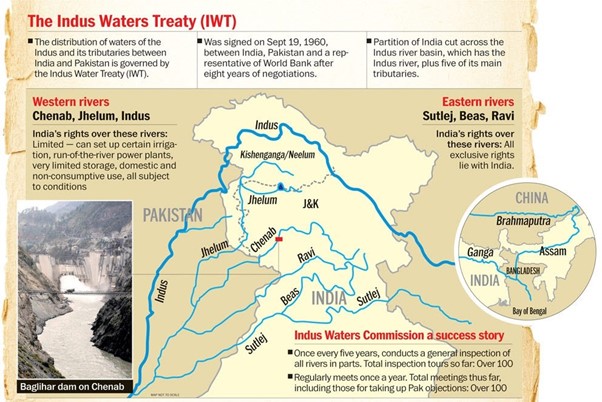7667766266
enquiry@shankarias.in
New Delhi has issued a notice to Islamabad seeking modification of the more than six-decade-old Indus Waters Treaty (IWT) that governs the sharing of waters of six rivers in the Indus system between the two countries.

Article XII (3) of the treaty says that the provisions of this treaty may from time to time be modified by a duly ratified treaty concluded for that purpose between the two Governments.
References